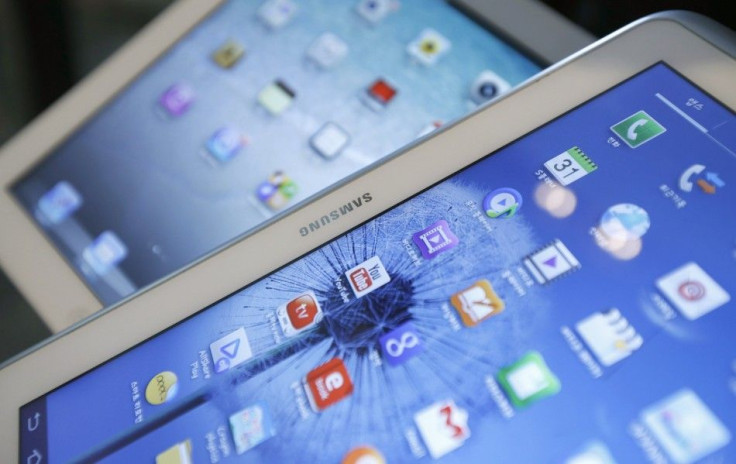Samsung 'Guilty' of Patent Infringement, Told to Pay Apple $120M

Samsung has been urged to pay $120 million to Apple by a federal jury that held the tech giant guilty of patent infringement. The exact amount to be paid is $119.6 million, as shown in court documents at the U.S. District Court of Northern District of California, San Jose division.
CNN reported the significant amount was much less than what Apple demanded for. Apple accused Samsung of four patent infringements, out of which only two got the green signal from the jury. Also, since a couple of accusations were not proved against the South Korean mobile company, it was entitled to receiving over $158,000 from Apple.
Apple issued a statement saying Samsung wilfully "stole" its ideas and "copied" its products. The U.S. company said the court ruling reinforced "what courts around the world" had already found.
It added it was "fighting to defend the hard work," which was responsible for producing "beloved products like the iPhone." The company employees devoted "their lives to designing and delivering for our customers," Apple said.
The trial where Apple accused Samsung of "stealing" its ideas like universal search went for about a month. This, however, was not the first time the two companies fought in courtroom battles against each other. There have been several court cases between the two in the past 3 years.
Apple has won around $930 million in 2012, but it failed to convince U.S. District Judge Lucy Koh. Reuters reported Apple asked for a permanent injunction against Samsung barring the company to sell its smartphones in the U.S. The appeal was not entertained.
According to some of the industry observers, Apple has been trying to limit the rapid growth of Samsung smartphones in the market.
Apple has been facing strong competition from Android smartphone as Samsung happens to be the leading seller of such products in the recent past. The amount of money won by Apple may seem quite significant but it is less than 10 percent of what it asked for.
For Apple, the lawsuit may already have cost more than the amount it is supposed to receive.




















